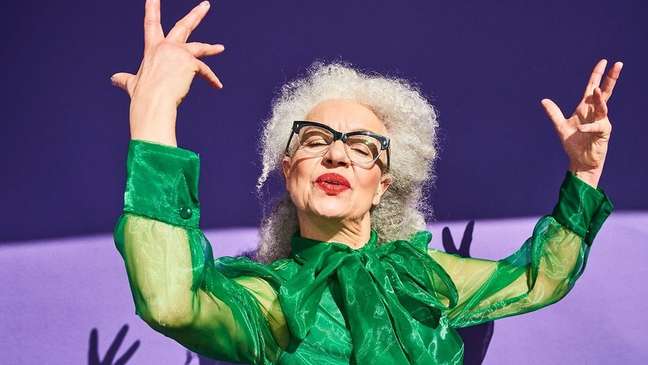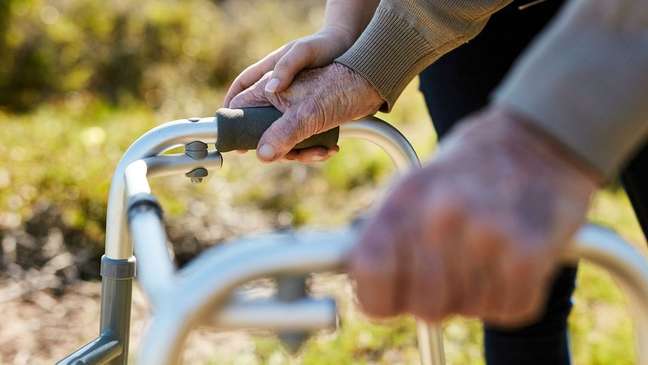The onset of old age depends on where you live, but it can also partly depend on how you view aging.

What age do you think corresponds to middle age? From 40 to 60 years old? 50 to 70? Somewhere in between?
It probably won’t surprise you to know that the answer people give to this depends on how old they are at the time they heard the question.
When half a million people filled out an online questionnaire in 2018, respondents aged 20-30 replied that, on average, middle age started at 40, while old age started at 62.
On the other hand, those over 65 did not think old age was reached before the age of 71.
It is quite obvious what happens. Nobody likes to think they’re getting old, so if you’re 40, you love articles that claim 40 is the new 30.
Likewise, people in their seventies are excited by the suggestion that, with advances in nutrition and health care, they are practically out of middle age.
Furthermore, we tend to want to dissociate ourselves from any stigmatized group.
This means that we resist being designated as old, when we see the elderly portrayed as frail, sedentary, sick and even a burden on society.
Of course, old age is a reality and the elderly must be treated with respect and dignity.
Is it then that people are simply deluding themselves when they refuse to consider themselves old?
Indeed, this can be a sensible strategy that can be implemented and improve the quality of life.
In 2003, researchers Hannah Kuper and Michael Marmot (famous for demonstrating the impact socioeconomic status can have on our health and life expectancy) conducted a large study in which participants were again asked: when does old age begin ?
Answers varied, of course, but what Kuper and Marmot found was that people who thought old age started earlier were more likely to have a heart attack, suffer from heart disease, or be generally in poor physical condition when monitored every six months. nine years later.
Participants in this research were participating in the so-called Whitehall II study, a longitudinal study of over 10,000 civil servants working in London.
The survey is robust and participants answered a wide variety of questions.
This meant that Kuper and Marmot could establish that other factors, such as employment level, could not explain the differences in health outcomes.
So how can the age you set for the onset of old age have such a big impact on your health?

One theory is that the answer to the simple question “when does old age begin” actually provides far more information about a person than one might think.
It could be, for example, that the question prompts people to think about their physical health, and if they have pre-existing health problems or an improper lifestyle, they may not feel so good and think old age is approaching soon. .
People who say old age comes faster may also be more fatalistic and less likely to seek help with health problems or adopt healthier routines, believing that decline is inevitable.
They may assume, for example, that older people are frail and begin to deliberately slow down and take it easy, when this is exactly what they shouldn’t be doing for their physical and mental health.
They can expect to forget things due to age, so they stop relying on their memories. It’s also possible that the stress of holding on to negative ideas about aging contributes to chronic inflammation and longer-term health problems.
So living up to the stereotype of an older person could increase the same problems they fear.
And, of course, the reverse may also be true.
People who think old age starts later may be more aware of their health and fitness and therefore take active steps to keep fit.
They believe they are younger and therefore behave younger, creating a virtuous circle.

Whatever the explanation, the Kuper and Marmot study isn’t the only research demonstrating the measurable benefits of thinking positively about aging.
Becca Levy of the Yale School of Public Health also produced extraordinary results, using data from the Ohio Longitudinal Study of Aging and Retirement, which followed more than 1,000 people who were at least 50 at the time.
Levy found that people who had positive ideas about their own aging (who agreed with comments like “I have the same vitality as last year” and who disagreed that aging becomes less useful) lived on average. 22.6 years later they were older, participating in the study for the first time, while those who felt less positive about old age lived, on average, only 15 years longer.
Then came a new study led by Susanne Wurm of the University of Greifswald in northern Germany that could define the problem more precisely.
And their findings offer good news for people who think more negatively in early old age. They were no more likely than average to die anytime soon.
But again, people who viewed old age more positively, as a time to learn new things and make new projects, for example, lived longer on average.
In this study, it didn’t really matter what people thought about the physical implications of aging, what mattered was whether they believed they would still develop and grow mentally.

None of this research means we can magically stop or reverse the aging process.
Sight, hearing, memory, muscle mass, bone strength, recovery processes – you name it, it all declines. And older people are obviously more vulnerable to a whole host of diseases.
All of these great studies are based on averages, so saying you’re not middle-aged won’t stop everyone from getting sick.
but in the book The expectation effect (“The Expectation Effect,” in free translation), science journalist David Robson makes some suggestions.
It indicates that instead of mourning the loss of youth, we should focus on the experiences and knowledge we gain as we age and realize how much better we handle situations.
When older people aren’t feeling well, they shouldn’t assume it’s all due to old age.
Above all, as we age, we should never give up trying to be healthier and believe that we can still do a lot.
If we adopt this attitude, we will probably live longer and enjoy these years.
Legal Notice
All content in this article is provided for general information purposes only and should not be considered a substitute for medical advice from your doctor or any other healthcare professional. The BBC is not responsible for any diagnosis made by a user based on the content of this website. The BBC is not responsible for the content of any external sites listed, nor does it endorse any commercial product or service mentioned or recommended on any of the sites. Always consult a doctor if you are in any way concerned about your health.
read the original version of this report (in English) on the website BBC Future.
– This text was published in https://www.bbc.com/portuguese/vert-fut-62313601
Source: Terra
Benjamin Smith is a fashion journalist and author at Gossipify, known for his coverage of the latest fashion trends and industry insights. He writes about clothing, shoes, accessories, and runway shows, providing in-depth analysis and unique perspectives. He’s respected for his ability to spot emerging designers and trends, and for providing practical fashion advice to readers.







